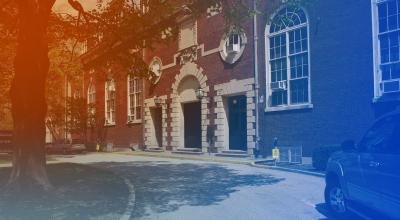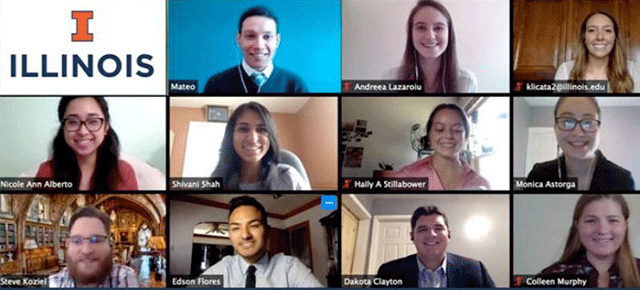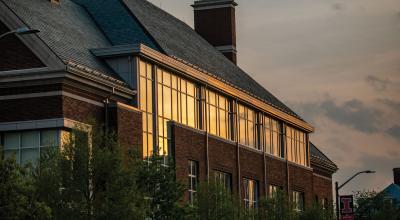
COVID Prompts Changes in MPH Internships
AHS E-News Fall 2020

by Vincent Lara-Cinisomo
Eleven students in the Master of Public Health program in the College of Applied Health Sciences saw their Applied Practice Experiences and Integrated Learning Experiences upended this summer because of the COVID-19 pandemic. But when they delivered their final reports during an August 7 Zoom call with MPH interim director Justine Kaplan, they all spoke of perseverance, patience and making the most of their revamped opportunities.
Stacia Simmons expected to work with programs within the Champaign-Urban Public Health Department to reduce the risk of HIV infection and prevent opioid overdose. When the pandemic shut everything down, however, she learned that she would instead be working remotely as a COVID-19 contact tracer. She also worked remotely as a contact tracer with the Howard Brown Health Center in Chicago. Although she was disappointed not to be working on site, she found positives in her new roles.
“My experience was amazing in that the work that I did directly aligns with my career interest, which is infectious disease prevention and treatment,” she said. “Being able to gain firsthand public health experience while also doing my part to help stop the spread of COVID-19 has been wonderful." Working with two different health agencies also allowed her to experience the different approaches that were taken to work with two different populations, and she called the dual internship "a blessing."
Monica Astorga also ended up working remotely for Howard Brown. She had hoped assist MPH alumna and diabetes case manager Anais Cotillas on site with a survey, but COVID-19 had other plans. “While I was looking forward to being more hands-on and in person, I’m still very grateful and I learned a lot,” she said.
Shivani Shah worked as a research intern with two studies underway in Northwestern University’s Feinberg School of Medicine--the South Asian Heart Lifestyle Intervention (SAHELI) and South Asians Active Together (SAATH) studies. She was expecting to be involved in recruiting participants for the studies and doing educational outreach. She instead was involved in planning COVID-related modifications to recruitment and other aspects of the research.
“I learned a lot more about the extensive planning that goes into a robust research study,” she said. “I saw a completely new side of organizational management, which is meaningful.” Although she was initially hesitant to do her APE in a research setting rather than an organization with more direct community contact, she came to appreciate the important contributions research makes to both the advancement of knowledge and the health of a community. She now looks forward to continuing her involvement with community-based research in her career.
Edson Flores also assisted with research for his APE, conducting and analyzing the results of bilingual interviews meant to validate and strengthen a survey to be used in a study of Mexican immigrants in the Midwest. He felt the experience tapped into the knowledge and skills he gained through the MPH program. As he plans to pursue an academic career, he also felt his APE provided good preparation for a PhD program.
While the APE experiences of many MPH students took unusual turns because of the coronavirus pandemic, Edson doesn’t think that’s necessarily a bad thing. “One thing this pandemic has taught me is that there are alternative ways to produce the same work,” he said. “My advice to future students who may find themselves with disrupted APEs is to be creative.”

